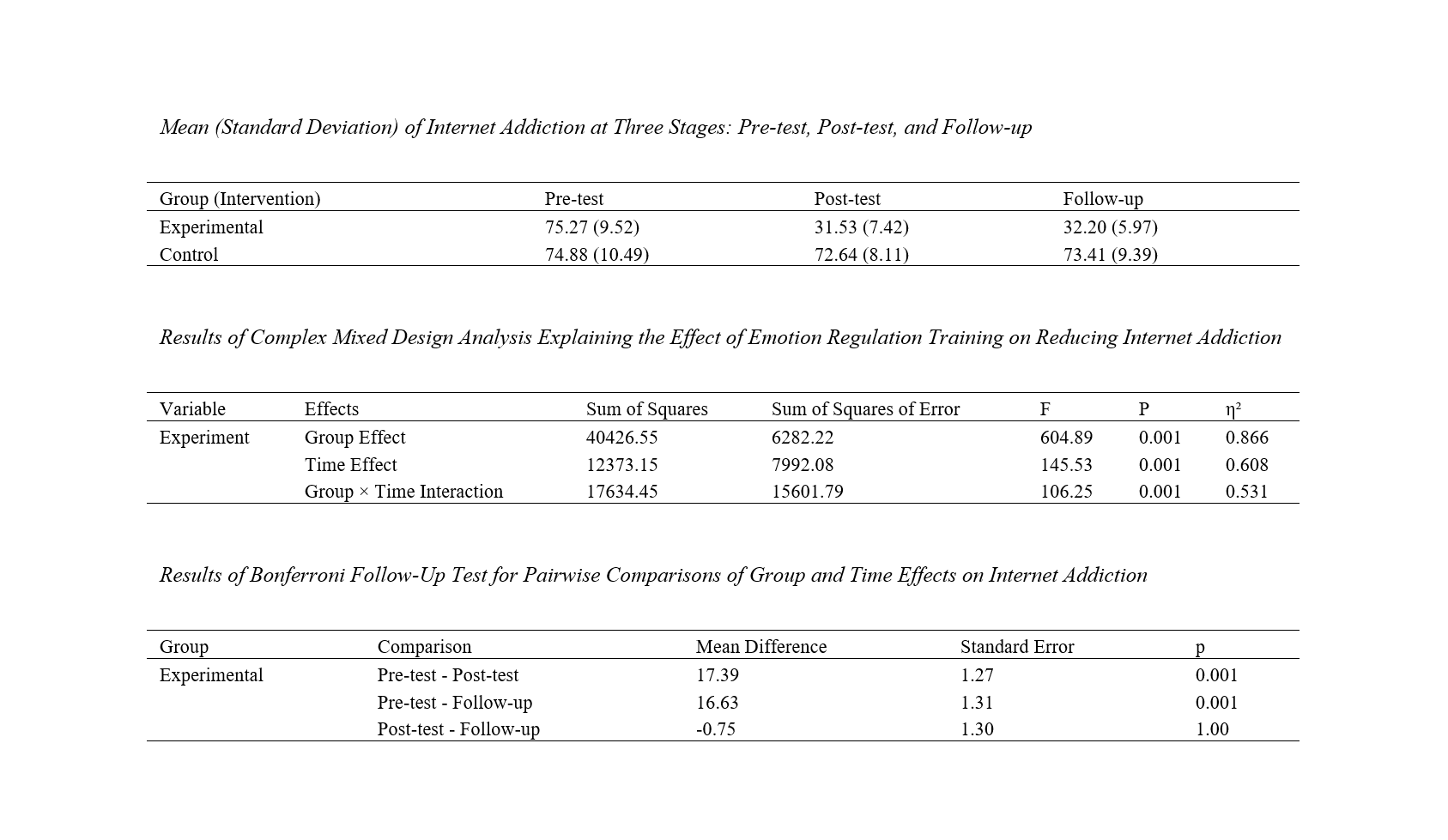Development of an Emotion Regulation Training Protocol and Evaluation of its Effectiveness on Internet Addiction in Female Students
Keywords:
Internet addiction, emotion regulation, studentsAbstract
Objective: The present study aimed to develop a protocol for emotion regulation training and to examine its effectiveness on internet addiction among female students.
Methods and Materials: The methodology of this study was a quasi-experimental design with a pre-test, post-test, control group, and follow-up period. The study population consisted of all female internet-using high school students in Islamshahr in the year 2021 (ages 15 to 18). The sample size was 100 participants who were randomly assigned to either the experimental or control group. Goldberg’s General Health Questionnaires (1972) and Jackson’s Sensitivity to Reinforcement Questionnaires (2009) were administered before and after the training sessions to the relevant groups. The findings were analyzed using a mixed-methods approach.
Findings: The analysis showed that emotion regulation training led to a reduction in internet addiction (p = 0.001).
Conclusion: Consequently, it can be stated that employing an emotion regulation approach can effectively reduce internet addiction among students.
Downloads

Downloads
Additional Files
Published
Submitted
Revised
Accepted
Issue
Section
License
Copyright (c) 2024 Fataneh Kheiripour, Maryam Bahrami Hidaji, Fatemeh Mohammadi shirmahaleh, Zohreh Rafezi, Mania Asgharpour (Author)

This work is licensed under a Creative Commons Attribution-NonCommercial 4.0 International License.








